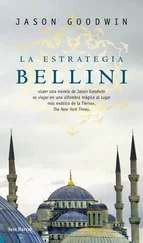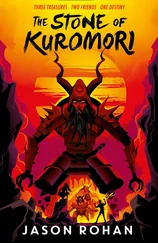Jason Goodwin - The snake stone
Здесь есть возможность читать онлайн «Jason Goodwin - The snake stone» весь текст электронной книги совершенно бесплатно (целиком полную версию без сокращений). В некоторых случаях можно слушать аудио, скачать через торрент в формате fb2 и присутствует краткое содержание. Жанр: Исторический детектив, на английском языке. Описание произведения, (предисловие) а так же отзывы посетителей доступны на портале библиотеки ЛибКат.
- Название:The snake stone
- Автор:
- Жанр:
- Год:неизвестен
- ISBN:нет данных
- Рейтинг книги:4 / 5. Голосов: 1
-
Избранное:Добавить в избранное
- Отзывы:
-
Ваша оценка:
- 80
- 1
- 2
- 3
- 4
- 5
The snake stone: краткое содержание, описание и аннотация
Предлагаем к чтению аннотацию, описание, краткое содержание или предисловие (зависит от того, что написал сам автор книги «The snake stone»). Если вы не нашли необходимую информацию о книге — напишите в комментариях, мы постараемся отыскать её.
The snake stone — читать онлайн бесплатно полную книгу (весь текст) целиком
Ниже представлен текст книги, разбитый по страницам. Система сохранения места последней прочитанной страницы, позволяет с удобством читать онлайн бесплатно книгу «The snake stone», без необходимости каждый раз заново искать на чём Вы остановились. Поставьте закладку, и сможете в любой момент перейти на страницу, на которой закончили чтение.
Интервал:
Закладка:
Marta put a knuckle to her lips.
“I do not want to trouble the lord ambassador,” she said. “But perhaps you will help? You are his friend, and a good man.”
Yashim inclined his head. Marta had done him kindness in the past, he would not refuse her.
“Mrs. Xani says they must pay the moneylender tomorrow. Forty piastres. She has very little money.” She lifted a small red leather purse, which hung from the belt slung around her hips. “I have twenty-seven piastres. It is my money. If they do not pay, the debt will grow worse.”
Yashim frowned. He tried to remember Mrs. Xani, but his impression was indistinct: a woman in red skirts, a broom in her hand. Was Marta right to give her savings to this woman? Twenty-seven piastres: it was quite a lot of money.
“Can’t Mrs. Xani ask for time, until her husband gets back? Maybe he can pay off the debt.”
Marta shook her head. “You don’t understand, efendi. Forty piastres is the interest. Every month they pay.”
Yashim pursed his lips together and blew out. “Forty a month! I don’t believe it. How much does Xani owe?”
“Six hundred,” said Marta, lowering her voice. “Mrs. Xani, she is afraid for the children, if they cannot pay the money.”
Yashim knew nothing of the Xanis, but any fool could recognize Marta’s gullible good nature. Marta was fond of the children, Palewski had said. He wondered if it had all been planned: an estimate of Marta’s resources, Xani staying away to provide a pretext for this approach. My children, Marta! Oh, I am so afraid! Just forty piastres…
“Marta,” Yashim said firmly. “Xani is a poor man. Where would he borrow six hundred piastres? Why would he ever need so much money?”
Marta almost jumped in surprise. “Oh no, efendi! Xani is a good man. And a waterman, too. But he needed this money to pay the guild. An entrance fee, you understand, to buy the position.”
Yashim scratched his head. That, he admitted, made more sense. The guild would expect a payment-Xani was a kind of apprentice.
“But now he’s not here to pay? It’s convenient, Marta.”
“His wife is afraid, when he does not return. Maybe-”
She made a frightened little gesture, sketching a possibility she didn’t want to shape aloud.
Yashim tapped his foot angrily on the ground. He folded his arms and looked away.
“And Mrs. Xani has no money?”
“No, efendi. She does not. And the lord ambassador is very kind, but-Mrs. Xani does not want him to know. You understand, Yashim efendi?”
“Tchah!” Yashim exclaimed. “Very well. Who is this moneylender?”
“A Jew. He is called Baradossa. He lives in Balat, but Mrs. Xani does not know where.”
“Then how does she plan to get the money to him?”
Marta looked down and stirred the ground with her foot. “Yashim efendi, I thought-maybe, as a favor-maybe you could take him the money. You could find out where he lives. Please?”
Yashim stamped his foot, and said angrily: “Baradossa. Balat, forty piastres. Very well, Marta-no, you can keep your money. I’ll show you I can be a bigger fool than you or your master. And when Xani gets back, he can deal with me.”
Marta began to protest, holding out her little purse, but he waved her away.
Going out, he almost slammed the door, but not quite. Just in time, he had remembered that he should have left ten minutes before.
“Bloody Albanians!” he said under his breath. “Balat!”
51
Before heading across the Golden Horn to Balat, Yashim made a stop at the kebab shop at Sishane. At times when he didn’t feel the need or urge to cook, he often searched out something simple: a bean stew, perhaps, or a tripe soup recommended by his old acquaintance the soup master, whose strictures on simplicity were, if anything, more fierce than his own. Yashim was suspicious of elaboration in a public restaurant: like his sauces, the best results were achieved by cleaving to tradition, and using nothing but good judgment and the best ingredients. So many lifetimes had been devoted to the perfection of bean piyaz or tarator; Yashim had only one. It was a shame to waste an opportunity.
Poor Lefevre: it had been a mistake to expect the man to know anything. The Turks had been testing and refining dishes when the Franks chewed meat off bones held in their two hands!
The kebab shop was open to the street, where sliced hearts of lettuces were set out on a marble slab, beside sheep heads and feet, bowls of yogurt and clotted cream, some toorshan, or pickles, and a small array of simple meze. A waiter was flicking away the flies with a clean cloth; he nodded at Yashim. Inside, china pots, plates, and glasses sparkled on the shelves; a small fountain played in a corner. There was a glazed screen where a man with long mustaches ruled over a small empire of vases containing syrups and preserved fruits; on the other side the grills smoked against the wall, a half tunnel of brick and clay lined with small coals. Various cuts of meat were on a spit; little skewers sizzled and popped above the flames; now and then the bare-armed cook slapped another pide on the hot bricks and peeled it away as it began to crisp at the edges.
Yashim was led to a seat in the gallery, from where he could look down on the cooks. He saw the cook swing a spicy kofte kebab from the coals and wipe the meat from the skewer onto a fresh pide. Yashim felt hungry: he and the waiter put their heads together and decided what Yashim would eat. As he sipped his turnip juice, Yashim looked about him. It was a working crowd, he noticed: people who came to eat, not to loaf about with a pipe and a coffee. The sight of a small, stocky man with a shaved head across the restaurant reminded Yashim of an old friend, Murad Eslek. He was a supplier for markets across Istanbul, a cheerful, honest young man who had helped Yashim in a week when it sometimes looked as if the whole city were about to explode with fear, anger-and a sense of loss. Help was hardly the word: Eslek had once saved his life.
It wasn’t Murad Eslek, of course, who touched his kebab to the red pepper flakes on his plate and bent forward to eat, just someone who looked a bit like him. But from now on Yashim looked up when anyone walked in. These images didn’t arise by accident, Yashim was sure of that. Eslek the marketeer: he’d be a good man to talk to right now.
Yashim could smell the lamb on the coals, and the clean, singeing smell of the coals themselves. He had nothing against Xani. He would be like the quiet, hardworking men eating around him, a man with a wife, two children, the usual ambitions. Given a chance to escape the grind of poverty, he had seized it with both hands. A man to be congratulated, perhaps.
Debt, it was true, was dangerous ground. Yashim’s own were debts of honor: to those like Eslek, who had saved his life; to friends who helped him live it; and to others, innumerable, who gave him what he needed because they were good people. But at least Xani’s had not been the wasting indebtedness of the poor, the shabby contrivance that leads to penury and the betrayal of one’s loves and beliefs. A chance had come. The calculation was sound: with a proper job, the capital could be repaid. It was a shame that Xani had been driven to borrow from a stranger. Perhaps there hadn’t been time to make the necessary tour of his homeland somewhere in the Albanian hills.
Yashim’s kebab arrived. He took a piece of smoking lamb between the fingers and recognized its texture: this was good. He put it into his mouth, and with the same hand he broke off a piece of pide. He wondered that he had never eaten here before; he would like to come again.
He glanced down into the restaurant. There was the kebab cook, riddling a grill; another man ladling sweet syrup from a jar for a cooling khoshab: guild members, every one. The waiter had said the water came from the Khorosan spring, and Yashim had a comfortable sense of everything being done well, unhurriedly, according to the proper formula. Xani had taken that step himself, hadn’t he-from a common porter, to membership of a noble guild!
Читать дальшеИнтервал:
Закладка:
Похожие книги на «The snake stone»
Представляем Вашему вниманию похожие книги на «The snake stone» списком для выбора. Мы отобрали схожую по названию и смыслу литературу в надежде предоставить читателям больше вариантов отыскать новые, интересные, ещё непрочитанные произведения.
Обсуждение, отзывы о книге «The snake stone» и просто собственные мнения читателей. Оставьте ваши комментарии, напишите, что Вы думаете о произведении, его смысле или главных героях. Укажите что конкретно понравилось, а что нет, и почему Вы так считаете.












